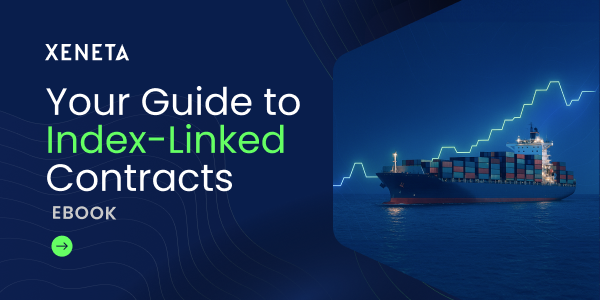This is part 6 of the Xeneta 11-part FAQ series focusing on key questions related to freight rate benchmarking and procurement. The series provides answers to the most frequently asked questions revolving around the complex world of ocean freight rate benchmarking and procurement. It provides you some tips and tricks to make the process a little less painful.
Part 1: When is the Best Time to Negotiate Ocean Freight Rates?
Part 2: Will I Leave Money on the Table with 12-month Fixed Rates?
Part 3: Should I Agree to Prices “Subject to GRI” or “Subject to Peak Season Surcharge”?
Part 4: How do Alliances Affect my Rates and Service Contract with a Carrier?
Part 5: Should I Choose a Carrier Based on Trade lane or Based on Combined Volume?
Should I Benchmark my Shipping Freight Rates Against the Competition?
Yes, of course. How else do you know if you have received a competitive rate from your supplier? You need to know how your rates compare to your peers, the market, in order to make sane freight procurement decisions.
In the current market, carriers are placing more focus on reducing their costs and increasing their bottom line through mergers and acquisitions, shipping alliances and other factors. When coupled with socio-economic factors it is in many cases difficult to keep up with how container market rates are moving.
The Importance of Freight Benchmarking
Such developments create unpredictability in the market, and it is important that you have the factual data and information in order to benchmark the rates that you should be paying.
Depending on the Incoterms® used, ocean freight rates form a very integral and critical component of your total end-product price.
As a BCO, irrespective of the size of your business, freight benchmarking can and should be done against other BCOs. It is important that you benchmark the ocean freight rates against your competition as benchmarking is the only way by which you ascertain that you have secured the best possible freight rate, are working with the supplier that best meets your target rate and needs and ultimately make sure you are making fact-based freight procurement decisions.
Freight benchmarking is not restricted only to BCOs but also commonly used by NVOCCs or Freight Forwarders as part of establishing their identity and standing in the market.
Even carriers and VOCCs have their own methodologies of freight benchmarking although this is mostly based on supply and demand. When there is excess capacity in terms of ships and space availability, for example just after Chinese New Year or Christmas when the sale season has finished, carriers and VOCCs may be able to offer better spot rates to optimize their utilization.
Whether you are a Carrier, VOCC, BCO, NVOCC or Freight Forwarder, it is definitely beneficial to benchmark in order to ascertain one’s position in the market over time.
By leveraging that position in the market and through regular benchmarking against the competition, one can ascertain the direction in which the market is moving and tackle the market volatility suitably and remain relevant in this competitive industry.
.png)



-1.jpg)
.jpg?width=1200&name=Cargo%20Ship%20Loading%20Containers%20(1).jpg)


